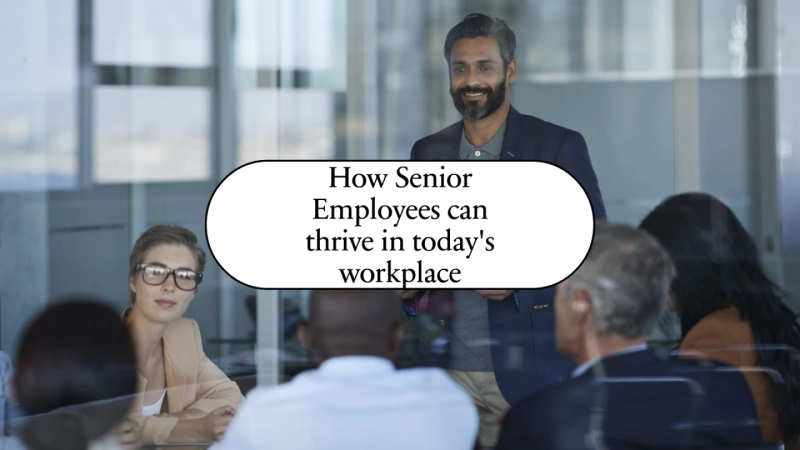The corporate landscape is a dynamic ecosystem, constantly evolving with new technologies, trends, and ways of working. While experience remains an invaluable asset, senior employees can sometimes find themselves facing an unexpected hurdle: the perception that their age makes them somehow less valuable.
In this blog we will dive into this very real challenge, exploring the reasons why senior employees might encounter limitations and outlining a clear path to staying relevant and thriving in today's workplace.
Understanding the Roadblocks:
There are several factors that can contribute to the difficulties senior employees might face:
Cost Concerns: Companies, particularly in a tight economic climate, may prioritize hiring younger employees perceived as a more affordable option.Skill Gaps: The rapid pace of technological advancement can leave some senior employees feeling their skillset isn't keeping up with changing industry demands.Health Biases: Unfounded concerns about age-related health issues or decreased productivity can lead to discriminatory hiring practices.Resistance to Change: Some companies may perceive senior employees as less adaptable to new working styles or technologies.Ageism: While illegal, unconscious bias against older workers can still exist within some organizations.Its not all that bad. There is a crucial point: age itself is not a barrier to success. Senior employees possess a wealth of experience, wisdom, and institutional knowledge that younger counterparts simply lack. The key lies in transforming this experience into a competitive edge by actively developing your skillset and demonstrating your adaptability.
The Roadmap to Relevance:
There can be several actionable steps senior employees can take to stay relevant and competitive:
Embrace Lifelong Learning: Commit to continuous learning. Take online courses, attend industry workshops, or pursue certifications to stay current with the latest advancements in your field.Expand Your Skillset: Don't be afraid to venture outside your comfort zone and learn new skills that complement your existing expertise. This demonstrates a growth mindset and adaptability.Network Like a Pro: Build strong connections with colleagues and professionals in your industry. Attend industry events, participate in online forums, or reconnect with former colleagues. A strong network can provide valuable insights, open doors to new opportunities, and keep you informed about current trends.Step Outside Your Comfort Zone: Volunteer for new projects or assignments that push you to learn new skills and broaden your horizons. This demonstrates your willingness to adapt and embrace change.Become a Mentor: Share your vast experience by mentoring younger colleagues. This not only fosters knowledge transfer within the organization but also keeps you engaged with the latest industry trends through your interactions with the next generation of professionals.Advocate for Yourself: Don't be afraid to showcase your accomplishments and the value you bring to the table. Highlight your experience, adaptability, and willingness to learn during performance reviews and job interviews.Staying Positive and Motivated:
The importance of maintaining a positive and growth-oriented mindset is immense. Show enthusiasm for learning, a commitment to continuous improvement, and a willingness to adapt to a changing environment.
Senior employees are a vital part of any successful organization. By embracing lifelong learning, demonstrating adaptability, and advocating for yourself, you can shatter the age barrier and continue to thrive in the dynamic world of work.
About Author
Satyajit Senapati is a best-selling Author, TEDx & Public Speaker, and Mentor. He has 2 decades of management consulting and corporate strategy experience in leading organizations such as Deloitte, KPMG, Jio, Novartis, etc. He holds an MBA from IIM Lucknow. For more information explore
Website: www.satyajitsenapati.com
Insta: iamsatyajits
LinkedIn: / satyajit-senapati



